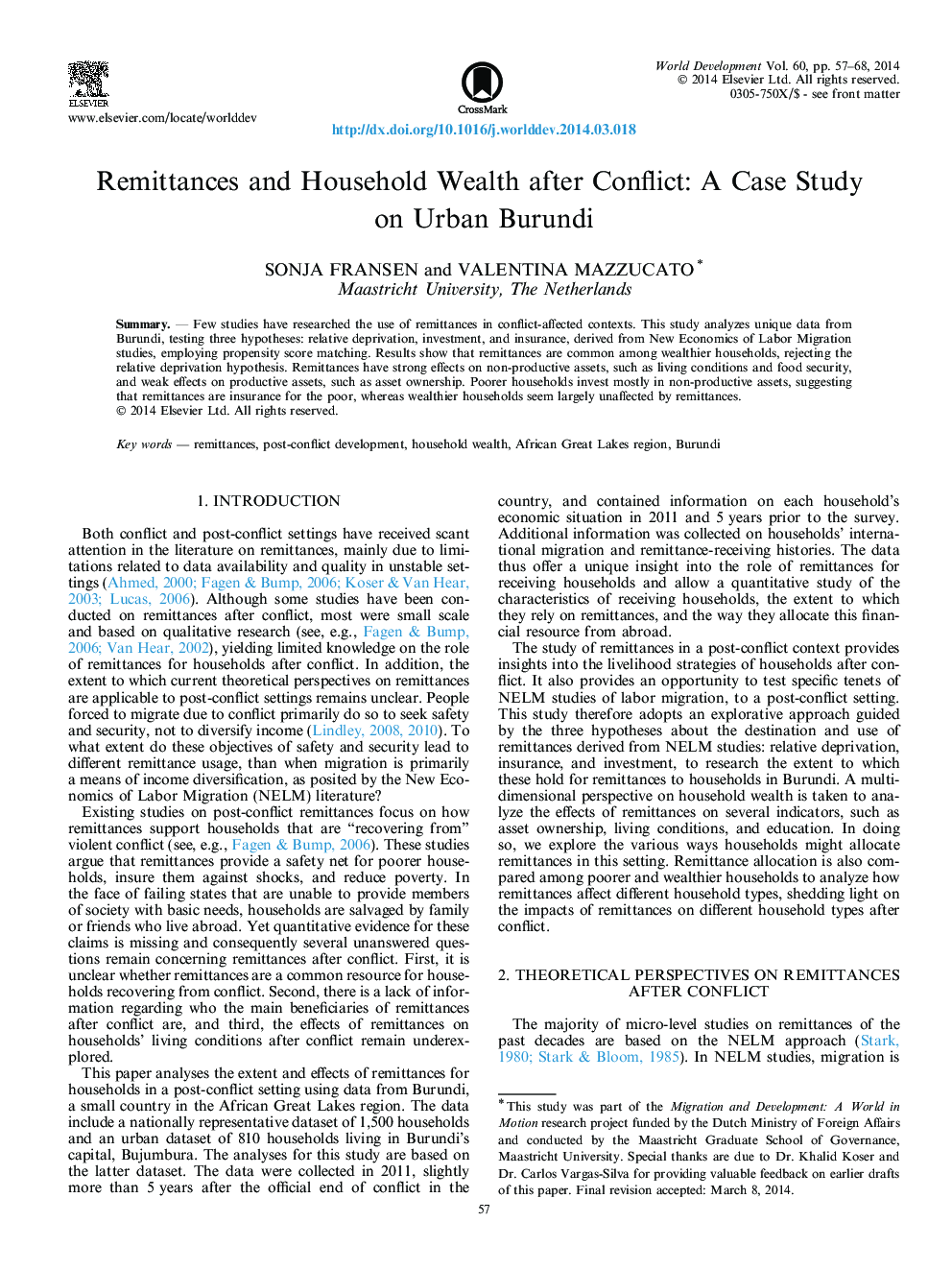| Article ID | Journal | Published Year | Pages | File Type |
|---|---|---|---|---|
| 991650 | World Development | 2014 | 12 Pages |
SummaryFew studies have researched the use of remittances in conflict-affected contexts. This study analyzes unique data from Burundi, testing three hypotheses: relative deprivation, investment, and insurance, derived from New Economics of Labor Migration studies, employing propensity score matching. Results show that remittances are common among wealthier households, rejecting the relative deprivation hypothesis. Remittances have strong effects on non-productive assets, such as living conditions and food security, and weak effects on productive assets, such as asset ownership. Poorer households invest mostly in non-productive assets, suggesting that remittances are insurance for the poor, whereas wealthier households seem largely unaffected by remittances.
